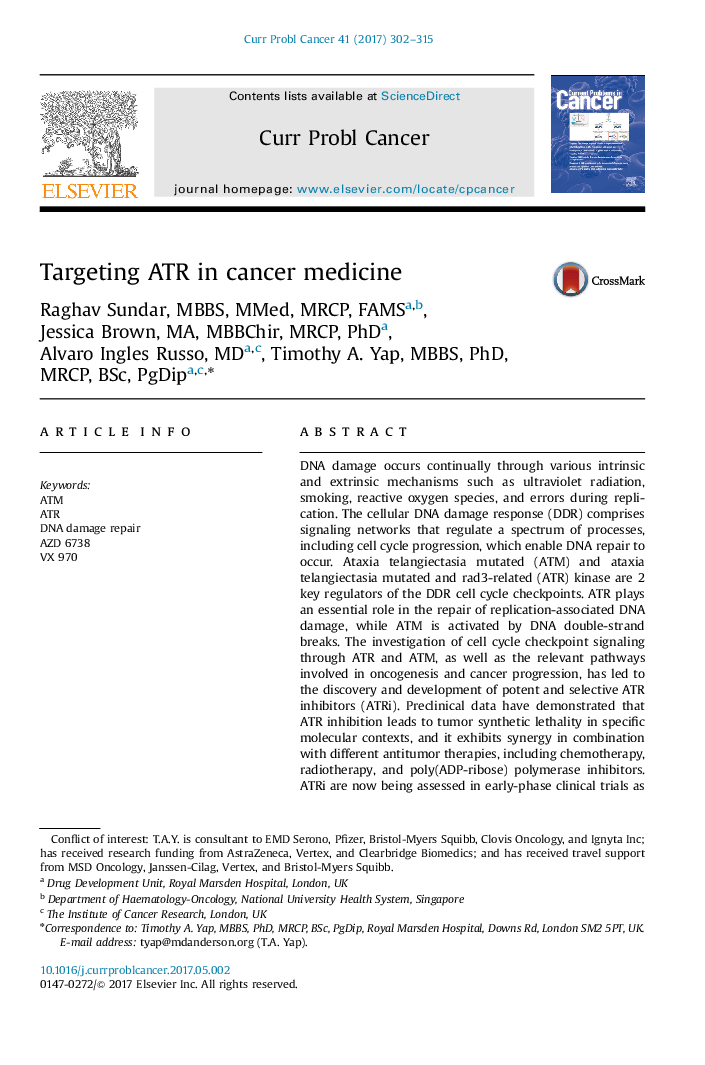| Article ID | Journal | Published Year | Pages | File Type |
|---|---|---|---|---|
| 5664229 | Current Problems in Cancer | 2017 | 14 Pages |
DNA damage occurs continually through various intrinsic and extrinsic mechanisms such as ultraviolet radiation, smoking, reactive oxygen species, and errors during replication. The cellular DNA damage response (DDR) comprises signaling networks that regulate a spectrum of processes, including cell cycle progression, which enable DNA repair to occur. Ataxia telangiectasia mutated (ATM) and ataxia telangiectasia mutated and rad3-related (ATR) kinase are 2 key regulators of the DDR cell cycle checkpoints. ATR plays an essential role in the repair of replication-associated DNA damage, while ATM is activated by DNA double-strand breaks. The investigation of cell cycle checkpoint signaling through ATR and ATM, as well as the relevant pathways involved in oncogenesis and cancer progression, has led to the discovery and development of potent and selective ATR inhibitors (ATRi). Preclinical data have demonstrated that ATR inhibition leads to tumor synthetic lethality in specific molecular contexts, and it exhibits synergy in combination with different antitumor therapies, including chemotherapy, radiotherapy, and poly(ADP-ribose) polymerase inhibitors. ATRi are now being assessed in early-phase clinical trials as single agents and in combinatorial regimens, including platinum and other chemotherapies, radiotherapy, poly(ADP-ribose) polymerase inhibitors, and immune checkpoint inhibitors. This article details the preclinical biology leading to the discovery and development of novel ATRi and discusses the rationale for monotherapy and combination antitumor strategies. We focus on the clinical development of ATRi and discuss the progress made in identifying putative predictive biomarkers of response for patient selection, such as p53, ATM, ARID1A, and other DDR aberrations.
